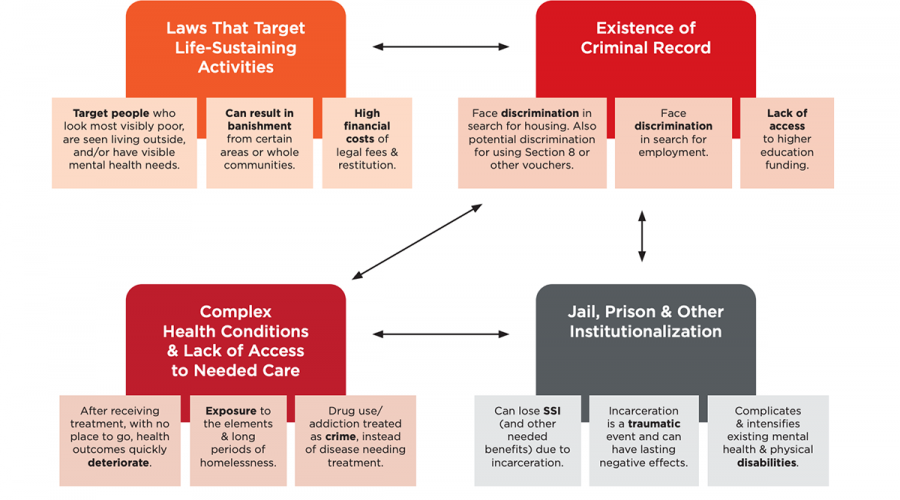Many lawmakers and community members would like to combat homelessness in effective ways, but pervasive myths and stereotypes about chronic homelessness, especially regarding behavioral health needs, have led to the pursuit of ‘solutions’—like criminalization—that only exacerbate the problem and lead to more human suffering. Chronic homelessness is a systemic problem that must be solved through systemic solutions. Policies that criminalize the life-supporting behaviors of individuals perpetuate systemic racism, have a negative impact on physical and mental health outcomes, increase the likelihood that an individual will remain trapped in the cycle of homelessness, and have disparate impacts on other already marginalized people including victims of domestic violence, people with disabilities, LGBTQ+ people, and veterans. On a larger scale, these policies also hinder the advancement of real solutions to end chronic homelessness.
This toolkit is designed to help communities better understand and influence the systems and players involved in preventing and ending homelessness. It provides examples of concrete steps and actions to educate decision makers and build the public will to prevent and end homelessness. Members of local homeless networks across Washington informed the strategies outlined in this document.

This toolkit will help advocates, direct service providers, and other community stakeholders to:
1. Articulate the root causes of homelessness and the harms that the criminalization of homelessness causes.
2. Educate decision makers about alternatives, using local and statewide data and lived experiences.
3. Develop effective relationships to move key decision makers.
4. Advance a new public narrative about ending chronic homelessness.
Download the full toolkit pdf here.
Developed in 2015 and updated in 2020 with a focus on behavioral health including resources for people with opioid disorder, this project was started through the work of the Washington State Department of Social and Health Services (DSHS), and updated in partnership with the state Health Care Authority. Funding for this toolkit came from Grant Number T1025342 from the Substance Abuse Mental Health System Administration (SAMHSA). The views and opinions contained in this publication do not necessarily reflect those of SAMHSA or the U.S. Department of Health and Human Services.
Funding for this updated version comes from Grant Number TI010057 from the Substance Abuse Mental Health System Administration (SAMHSA). The views and opinions contained in this Publication/conference do not necessarily reflect those of SAMHSA or the U.S. Department of Health and Human Services.

